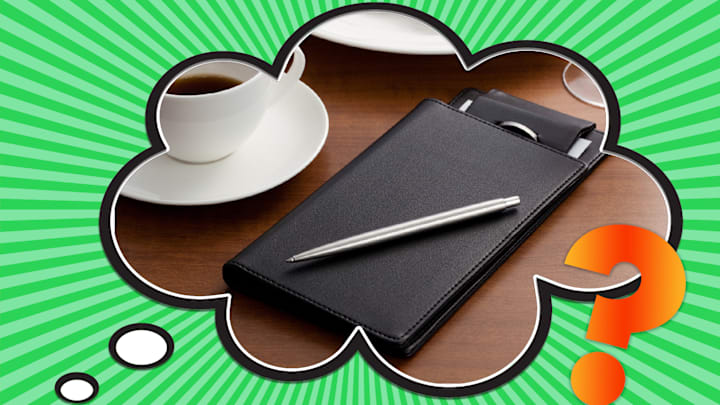Say you’re dining alone at a restaurant and you find yourself unable to pay the bill—maybe your only available card got declined, maybe you forgot your wallet, etc. These days, Apple Pay, Venmo, or some other smartphone capability can likely save you from an awkward impasse with your server. But let’s pretend, for the purposes of this discussion, that you accidentally left your phone at home, and you truly have no recourse for paying.
Will you be spending the next several hours elbow-deep in dirty dishwater, washing away until you’ve settled your debt?
Probably not. As Lifehacker explains, the FDA has rules against letting “persons unnecessary to the food establishment operation” in the kitchen. And even if it didn’t, the effort needed to show you the ropes—and the possibility that you’d get hurt on the job—is much more trouble than it’s worth.
What will happen entirely depends on the restaurant and your particular situation. Often, staff will let you leave on the good-faith assumption that you’ll pay up when you can. As Terryl Gavre, owner of San Diego’s Cafe 222, told Eat This, Not That!, she writes I.O.U.s for payment-less patrons, almost all of whom end up returning to resolve them. Other spots have had customers call back with credit card information and complete the transaction over the phone.
Sometimes, restaurants will ask for collateral—like your phone or ID—to ensure your return. Some places will call law enforcement to record your information before you leave; but as long as you reappear with valid payment in a timely manner, you probably won’t be charged with any wrongdoing. Intentionally dining and dashing is a little different—and you could end up in legal trouble, depending on state laws. But if you make an honest mistake, there’s a good chance the restaurant will work with you to remedy it without taking you to court.
[h/t Eat This, Not That!]
